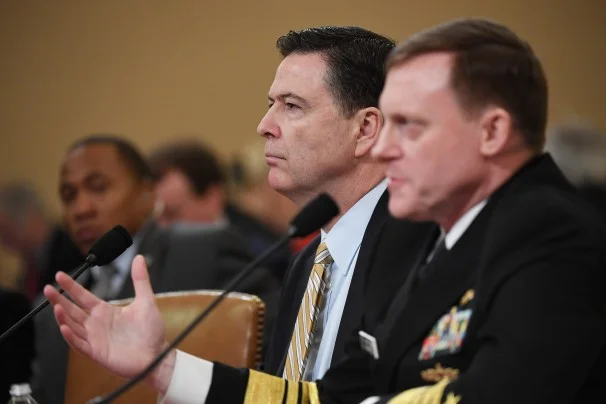How Comey's testimony reveals need for special prosecutor By Luke Perry
Yesterday FBI Director James Comey gave lengthy testimony before the House Intelligence Committee that confirmed their investigation of potential collaboration between the Trump campaign and Russia, and rejected President Trump’s wiretapping allegation toward President Obama. The FBI doesn’t traditionally disclose such an investigation, but in rare cases, Comey explained, the public interest deem it appropriate. This was one of those cases. The testimony could hardly be worse for the president, further diminishing his credibility and popularity.
The Trump administration is now in the ironic position of publicly seeking to disqualify Hillary Clinton for being investigated by the FBI during the campaign, while in fact, being under investigation themselves. The makes the unprecedented chants of “lock her up,” devised and encouraged by Donald Trump and his surrogates (that continue to emanate at rallies) deeply hypocritical.
Photo by Andrew Harrer/Getty
Of course, if/when the Trump administration knew it was under investigation is unclear, and like Clinton, everyone under investigation certainly may not have engaged in criminal activity.
Still, the Trump campaign’s strategy to “go negative” like no other before exercised little restraint and it's now becoming clear how this strategy, though victorious, is creating distractions and challenges for Trump’s fledgling attempts at presidential leadership.
More importantly, the over five hours of testimony by Comey and Admiral Michael Rodgers, head of the National Security Agency, clearly revealed the need for a special prosecutor to investigate this matter. There were moments of valuable questioning, but much more political posturing and maneuvering to control the spin emanating from the headline grabbing afternoon.
Democrats were eager to debunk Trump’s invalid allegation that President Obama wiretapped him and document the depth and peculiar nature of connections between the Trump administration and Russia. Republicans were eager to attack those who leaked relevant classified information and document the lack of evidence that vote tampering occurred on Election Day.
The hearing did remarkably reveal a presidential campaign under investigation for potentially collaborating with a foreign power to help secure victory, a foreign power the intelligence agencies uniformly agree was actively seeking to aid the victory of Donald Trump.
To make matters worse, the President has long been oddly cordial to Vladimir Putin and warm to strengthening relations with Russia while military, intelligence, and political leaders have uniformly identified the country as America's top national security challenge.
This unique and potentially explosive moment cannot be effectively evaluated by members of Congress who institutionally are tied to the interests of their political party and their self-interest in the form of reelection, however well-intentioned they may be.
Luke Perry (@PolSciLukePerry) is Chair and Associate Professor of Government at Utica College.






